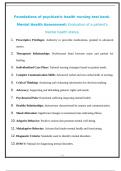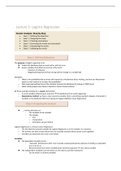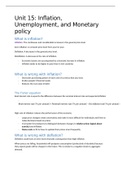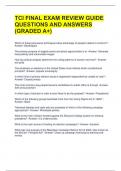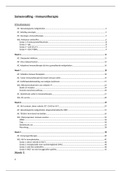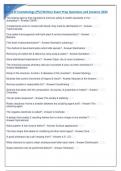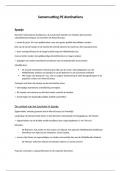Enrique Sarabia Sánchez - personal identifier: G6533073
A222 - TMA 03 – Part A
What (if anything) do criteria for personhood tell us about the moral
permissibility of abortion? Word Limit: 1300/1800 words
In this essay I will analyse why philosophers came to such different positions,
explaining their disagreement on the fundamental rights of the fetus. I will argue that
neither Warren's nor Don Marquis' reasoning successfully demonstrates the soundness
of their assertions. I will rely on arguments about the approach of morality as a limit to
understanding the question of "moral permissiveness": societies set their moral
doctrines on the premise that beings who have certain rights are related to certain
moral rights and therefore it is of great importance for society to apply a set of rules of
conduct concerning those beings.
The philosopher Mary Ann Warren (Barber, 2011, p. 141), argued in a report in 1973
that abortion was morally acceptable because fetuses were not part of a moral society,
so is abortion ethically permissible?
Don Marquis (1989), defended that abortion is an inhuman practice since it deprives
fetuses of a "future like ours" (Barber, 2011, p.151). Concerning the problem of the
"moral permissiveness" of abortion, both Warren and Marquis put forward their
corresponding reasoning determining which characteristic attributes of the foetus may
or may not grant it moral rights. Consequently, these rights would or would not grant
women the "moral permissiveness" of abortion. For Mary Anne Warren, the origin of
the answer to the question of the "moral permissiveness" of abortion lies in the obvious
fact that we use the term "human" with two different definitions: genetics and morality.
There are therefore entities that are genetically human and entities that are morally
human (Warren in Barber, 2011, p.187). The reasoning establishes criteria to
distinguish them. Warren suggests five specific characteristics that are essential to the
meaning of the concept of "humanity in the moral sense": consciousness, reasoning,
self-motivated activity, ability to communicate, and the existence of self-consciousness
(Warren in Barber, 2011, p.188). The result of this approach in Warren's argument is
that, according to his criterion, "a fetus is not a person", but only a member of "genetic
humanity" (Warren in Barber, 2011, p.189), because none of the five characteristic
elements that Warren proposes as determinants of personality exists in fetuses. This
deduction would naturally mean that the group of behaviour patterns that we have in
our Moral Community, such as: not killing our fellow human beings, would not apply to
foetuses. Abortion would then, according to Warren, be morally acceptable (Barber,
2011, p. 143): he proposes that Warren's argument take the following form:
Condition 1: Killing is only a bad thing if it is a person.
Condition 2: Fetuses are not persons.
Conclusion: It is not a bad thing to kill fetuses.
Several exceptions could be made to this reasoning. The first of these would be to
accept in principle the legitimacy of the concept (it is not wrong to kill beings outside
the moral community), but this would include the fact that there would be some morally
unacceptable situations such as people with dementia, drugged or drunk, in a state of
coma etc. According to Warren, they would not be members of the moral community
and killing them could be morally acceptable. Warren responded to this exception in
1982, arguing and suggesting that the infanticide exception has emotional force but no
logical force (Warren in Barber, 2011, p. 191), and insists that it is a mistake for "moral
limitations on killing to be imposed on all genetically human entities" (Warren in Barber,
A222 - TMA 03 – Part A
What (if anything) do criteria for personhood tell us about the moral
permissibility of abortion? Word Limit: 1300/1800 words
In this essay I will analyse why philosophers came to such different positions,
explaining their disagreement on the fundamental rights of the fetus. I will argue that
neither Warren's nor Don Marquis' reasoning successfully demonstrates the soundness
of their assertions. I will rely on arguments about the approach of morality as a limit to
understanding the question of "moral permissiveness": societies set their moral
doctrines on the premise that beings who have certain rights are related to certain
moral rights and therefore it is of great importance for society to apply a set of rules of
conduct concerning those beings.
The philosopher Mary Ann Warren (Barber, 2011, p. 141), argued in a report in 1973
that abortion was morally acceptable because fetuses were not part of a moral society,
so is abortion ethically permissible?
Don Marquis (1989), defended that abortion is an inhuman practice since it deprives
fetuses of a "future like ours" (Barber, 2011, p.151). Concerning the problem of the
"moral permissiveness" of abortion, both Warren and Marquis put forward their
corresponding reasoning determining which characteristic attributes of the foetus may
or may not grant it moral rights. Consequently, these rights would or would not grant
women the "moral permissiveness" of abortion. For Mary Anne Warren, the origin of
the answer to the question of the "moral permissiveness" of abortion lies in the obvious
fact that we use the term "human" with two different definitions: genetics and morality.
There are therefore entities that are genetically human and entities that are morally
human (Warren in Barber, 2011, p.187). The reasoning establishes criteria to
distinguish them. Warren suggests five specific characteristics that are essential to the
meaning of the concept of "humanity in the moral sense": consciousness, reasoning,
self-motivated activity, ability to communicate, and the existence of self-consciousness
(Warren in Barber, 2011, p.188). The result of this approach in Warren's argument is
that, according to his criterion, "a fetus is not a person", but only a member of "genetic
humanity" (Warren in Barber, 2011, p.189), because none of the five characteristic
elements that Warren proposes as determinants of personality exists in fetuses. This
deduction would naturally mean that the group of behaviour patterns that we have in
our Moral Community, such as: not killing our fellow human beings, would not apply to
foetuses. Abortion would then, according to Warren, be morally acceptable (Barber,
2011, p. 143): he proposes that Warren's argument take the following form:
Condition 1: Killing is only a bad thing if it is a person.
Condition 2: Fetuses are not persons.
Conclusion: It is not a bad thing to kill fetuses.
Several exceptions could be made to this reasoning. The first of these would be to
accept in principle the legitimacy of the concept (it is not wrong to kill beings outside
the moral community), but this would include the fact that there would be some morally
unacceptable situations such as people with dementia, drugged or drunk, in a state of
coma etc. According to Warren, they would not be members of the moral community
and killing them could be morally acceptable. Warren responded to this exception in
1982, arguing and suggesting that the infanticide exception has emotional force but no
logical force (Warren in Barber, 2011, p. 191), and insists that it is a mistake for "moral
limitations on killing to be imposed on all genetically human entities" (Warren in Barber,

